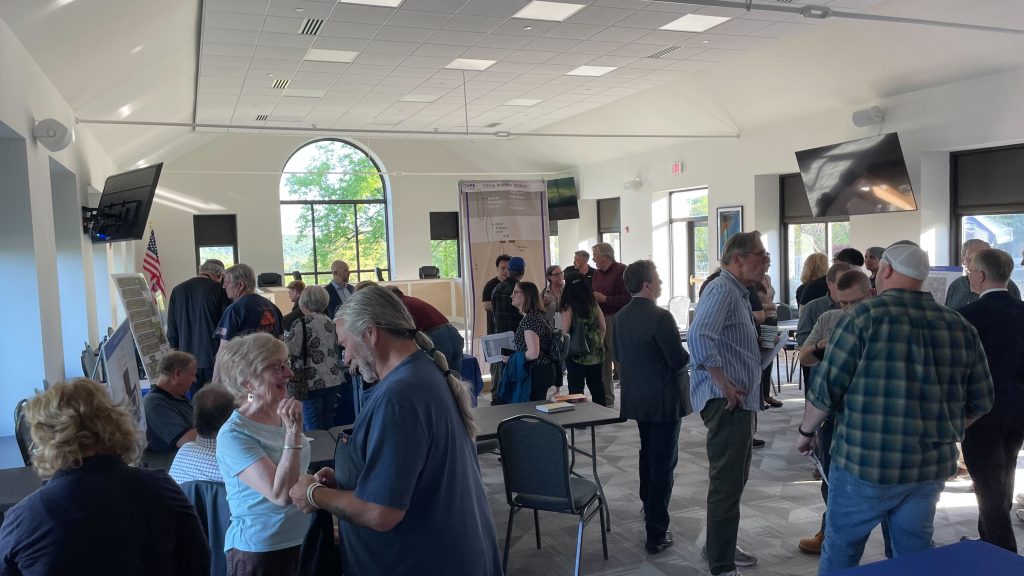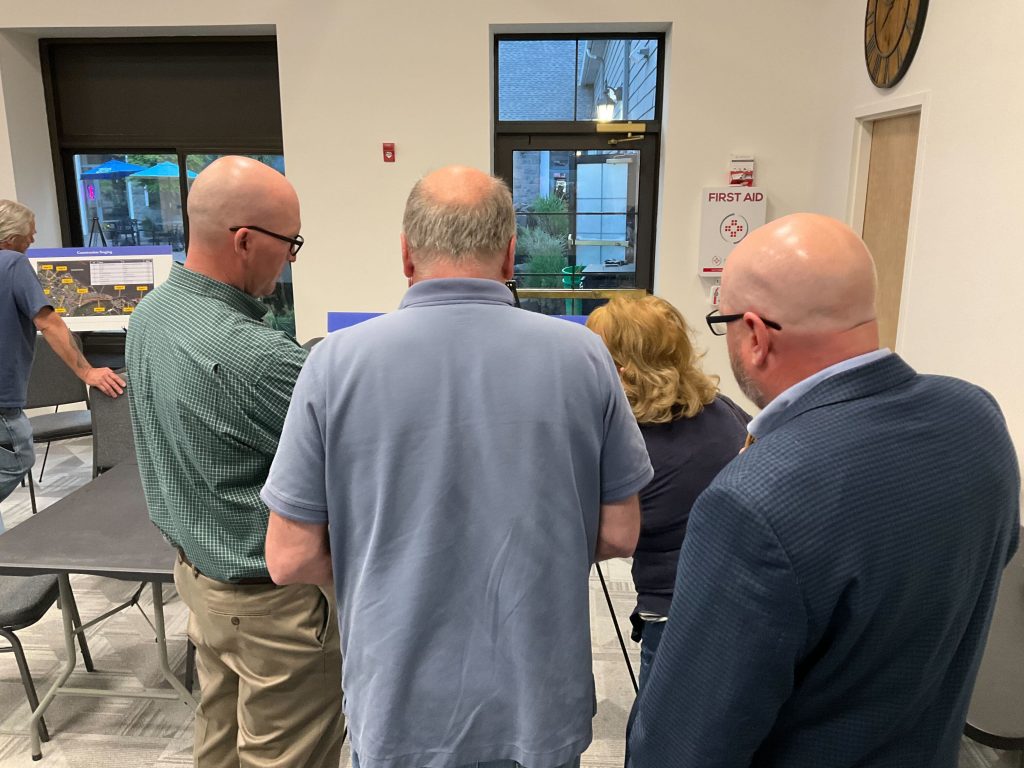
STONY POINT, NY – At a community meeting held at the Patriot Hills Golf Course, representatives of the Champlain Hudson Power Express (CHPE) outlined to a capacity audience the significant advantages their Canada to NYC highway project will bring to Stony Point and surrounding communities, including a $31 million community fund, and streetscaping upon completion of the project in 2026.

The CHPE project, aiming to establish a 339-mile transmission line from Quebec to New York City, promises substantial environmental and economic benefits, but also raises local concerns regarding highway closures. Set for completion by May 2026, the project aims to transport clean, renewable energy from Quebec to New York City.
Community Benefits and Impacts Met with Mixed Reactions
The CHPE project is a 339-mile transmission line designed to supply New York City with hydropower, which could significantly reduce the city’s reliance on fossil fuels. The line runs at times through the Hudson River, emerging near Tomkins Cove NY and continuing underground southbound on Route 9w. CHPE has expressed numerous benefits to local communities along its route, and have conducted over 100 community relations meetings.
One of the project’s standout features is its $31 million community fund, earmarked for enhancing local infrastructure. In addition to this, CHPE plans to invest in a streetscape design project that includes bike lanes, contributing to the community’s safety and aesthetic appeal.

According to several representatives at the event, environmental concerns have been thoroughly considered, with the project designed to have minimal impact on the local habitat. The decision to route part of the transmission line over land—rather than through the Hudson River for the entire stretch—was made to protect the habitat of the Hudson River sturgeon.
Work is scheduled tyically Monday through Friday in two shifts, morning and late afternoon. Occasionally – it was indicated – there would be weekend hours of work.
The work, according to CHPE representative Paul Weske, would typically run at approximately 100 feet at a time.
Using this calculation, a typical business or residential property would expect to have traffic interruptions in front of their location for a period of 4-7 days. One guest joked “Got it…so you’re telling me I should go on vacation that week.”
CHPE representatives also reassured that the line would be placed deeper than typical utilities, to prevent interference with future town projects and that some sections of the project would require entry onto private properties along Route 9W. Documentation of the project is available at chpexpress.com.
Despite these benefits, the meeting was not without its tensions. Several local residents were notably vocal during the discussion, frequently interrupting CHPE representatives while responding to questions, in order to express anxieties and dissatisfaction with the meeting format. Issues such as potential use of eminent domain, disruptions and compensation to local businesses, and environmental impacts were also hot topics.
The meeting also shed light on the legal and financial dimensions of the project. CHPE representatives stated that they had already settled 79% of the necessary property acquisitions out of court, but the remaining cases may lead to legal disputes.
Economic Impact and Local Development

The project is expected to create numerous jobs during its construction phase, with work structured in two shifts to maximize efficiency and minimize disruption. The construction will proceed at a pace of 100 feet per day, a rate that representatives stated “balances rapid progress with consideration for the local community’s daily activities.”
According to one chart displayed at the meeting, the stages of construction in any one area of 9w were broken down into the following:
- Maintenance of traffic
- Excavation and shoring
- Installation of the conduit
- Backfill
As one segment of the road’s initial stages of construction is completed, the next begins, and further down the road a new, initial phase begins. The chart indicated that disruption to any one specific location of road would typically take one week of construction.
Local businesses will need to time their openings with the increased traffic and highway activity. CHPE expressed a commitment to collaborating closely with property owners and businesses affected by the project, and have established a community hotline to reach out to CHPE directly at (800) 991-CHPE (2473). Another representative of CHPE emphasized the project’s commitment to property rights and community values, stating, “We negotiate with every landowner to ensure that the impact is minimal and benefits are fair.”

In response to concerns about project specifics, CHPE has promised to maintain open lines of communication, including proactive outreach, and an emphasis on sending detailed information to local landowners and organizing follow-up meetings.
Rockland News will be following developments on this story, and provide updates as they are made available.

